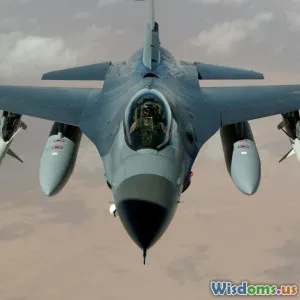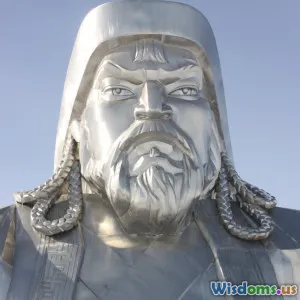
Behind the Legend Was Joan of Arc Really a Military Genius
9 min read Uncover whether Joan of Arc was truly a military genius beyond her legendary status. (0 Reviews)
Behind the Legend: Was Joan of Arc Really a Military Genius?
Introduction
Joan of Arc is one of history's most iconic figures—a courageous peasant girl who rose against overwhelming odds to lead French armies during the tumultuous Hundred Years' War. Revered as a saint and a martyr, the story of Joan's life dazzles with visions, heroism, and tragic martyrdom. But behind the romanticized legend lies a fascinating question: was Joan simply a inspirational symbol, or did she truly possess the qualities of a military genius?
This article seeks to unravel the complexities of Joan's military career, examining her leadership, strategic decisions, and battlefield impact with a critical yet appreciative lens. By diving into historical records, tactical analyses, and contemporary accounts, we aim to discover if Joan of Arc was a gifted commander who changed the face of medieval warfare, or more myth than military mastermind.
The Context: Joan’s Entry into the Hundred Years’ War
Born around 1412 in Domrémy, a small French village, Joan’s beginnings were humble, yet her rise coincided with a pivotal moment in the Hundred Years’ War—a protracted struggle between England and France for control over the French throne. The French monarchy was fractured: English forces occupied vast territories, including Paris, while the Dauphin Charles was seen by many as a weak and illegitimate heir.
Joan claimed she received divine visions instructing her to aid Charles in reclaiming his kingdom. When she arrived at the Dauphin’s court in Chinon in 1429, the tide of war was at a delicate impasse. Her task: to inspire the French troops and to lead them against formidable English strongholds.
Military Role and Achievements
Leadership Beyond Her Rank
Despite lacking formal military training, Joan’s leadership was far from naïve or symbolic. She successfully convinced Charles VII to let her accompany the army, a radical decision given her youth and gender. This breakthrough indicated her exceptional persuasive ability and charisma—both vital leadership traits often undervalued in analyses of military talent.
One of Joan’s crowning achievements was the relief of Orléans in 1429. The city had been besieged for months by English forces aiming to crush French resistance. Under Joan’s moral and strategic leadership, French forces launched a series of coordinated attacks. According to surviving chronicles including those of Jean de Dunois and Guillaume de Flavy, Joan's presence invigorated the troops to acts of daring and determinism. The breakthrough at Orléans marked a turning point in the war and was unprecedented given the city’s prior vulnerability.
Tactical Innovation or Inspirational Figure?
Historians debate to what extent Joan influenced battlefield tactics. It appears that while she did not engineer complex maneuvers typical of professional commanders, she advocated for aggressive strategies that exploited the enemies’ weaknesses. For instance, at the Siege of Orléans, Joan called for swift assaults and made key decisions to target strategic locations, such as the Tourelles fortress, which guarded the river approach.
Her approach emphasized mobility, surprise, and morale—elements later enshrined in military theory. Whether Joan originated these concepts remains speculative, but her conviction encouraged commanders and soldiers alike to adopt bolder tactics.
Coordination with Experienced Commanders
Joan operated within an established military hierarchy consisting of seasoned captains and nobles. Figures like La Hire and the Duke of Alençon not only fought alongside her but managed more complex logistical operations. Joan’s genius arguably lay in her ability to unify disparate factions under a common cause, leveraging her symbolic status to enforce discipline and focus.
While scholars acknowledge Joan was not a mentor in artillery or siegecraft, her strategic insights often complemented the expertise of her contemporaries. This symbiosis was crucial for successful campaigns.
Insights from Historical and Military Scholars
Modern military historians like Kelly DeVries and Craig Taylor recognize Joan's strengths as a commander in morale-boosting and decisive leadership—qualities necessary for victory in medieval warfare’s chaotic environment. While radar-like battlefield awareness or counterintelligence were beyond her known capabilities, her aptitude for timing military engagement and harnessing psychological warfare stands out.
Taylor writes, "Joan’s genius lay more as a catalyst than as a strategist in the traditional sense. Commanders under her banner found renewed vigor; soldiers believed their cause just and righteous. This intangible edge made her formidable."
Jean Benedetti emphasizes the importance of Joan’s faith-driven confidence: "Her reputation wasn't just built on religious conviction but also on an unshakable belief in destiny that inspires armies to achieve the impossible."
The Limits of Joan’s Military Genius
Lack of Formal Training and Experience
Medieval warfare involved extensive knowledge of supply lines, siege engines, troop formations, and diplomacy—areas where Joan was less proficient. Records highlight her dedication but do not reveal sophisticated technical know-how.
Moreover, some campaigns post-Orléans suggest Joan’s impetuousness, such as the failed assault on Paris in September 1429. Here, the overreliance on morale without adequate siege planning led to a costly retreat, underlining the limitations of her military approach.
The Role of Symbolism
Joan’s military career was undeniably intertwined with her symbolic status. Her armor, white banner inscribed with religious symbols, and reputation as the ‘‘Maid’’ inspired troops and unsettled opponents. This psychological factor, often underestimated, was pivotal in shifting the war’s morale dynamic.
Thus, Joan’s legacy as a military genius must be seen through a nuanced lens—recognizing that her impact transcended traditional battlefield expertise by harnessing ideology as a weapon.
Conclusion: A Military Genius Redefined
Joan of Arc defies easy categorization as a military genius by classical standards focused solely on tactical mastery or strategic logistics. Yet, her unparalleled ability to inspire, unite, and invigorate a fragmented army at a crucial moment arguably constitutes a different form of genius.
Her leadership in lifting the Siege of Orléans, bolstering French confidence, and aiding Charles VII’s coronation reverberated beyond mere battlefield victories—it reshaped French national identity and altered history’s trajectory.
While Joan may not have been a general with formal training in military science, her vision, courage, and resolute leadership command respect equivalent to that of celebrated commanders. Ultimately, Joan of Arc’s legacy as a military genius should embrace the holistic interplay of inspiration, leadership, and tactical prudence that won battles and hearts alike.
References:
- DeVries, Kelly. Joan of Arc: A Military Leader. University Press, 1999.
- Taylor, Craig. Joan of Arc: Warrior Saint. Praeger, 2007.
- Pernoud, Régine. Joan of Arc: By Herself and Her Witnesses. Scarborough House, 1996.
- Chronicle of Jean de Dunois, translated editions.
Rate the Post
User Reviews
Popular Posts



















